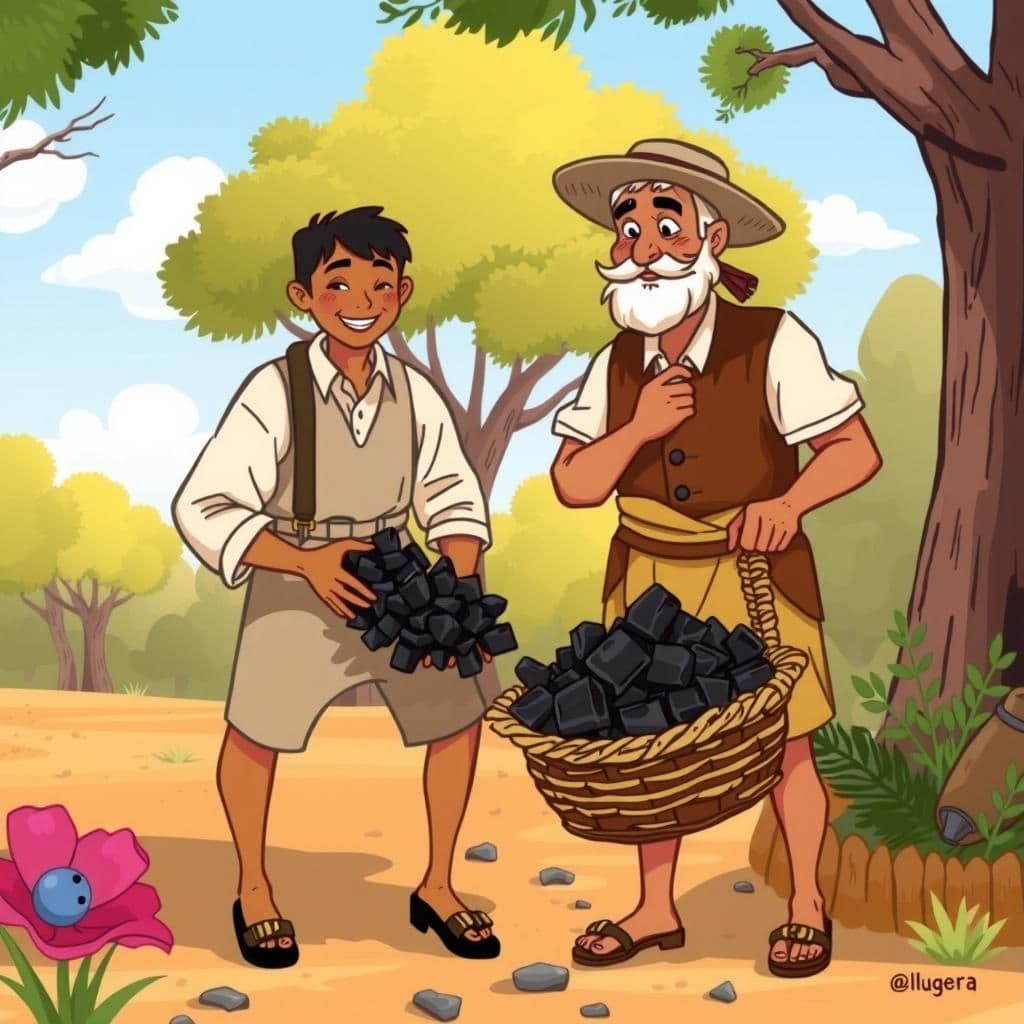The Judge and the Rash Act

Story Summary
In this humorous story with a moral, a discontented judge, desperate for recognition and contemplating suicide due to his lackluster career, encounters a ghostly figure known as the "Rash Act." When the figure offers to be committed, the judge declines, insisting that it would be improper to act on such a whim while not serving as a committing magistrate. This quick moral story highlights the absurdity of rigid adherence to duty, making it a fitting addition to short story collections with moral lessons for young readers.
Click to reveal the moral of the story
The story highlights the dangers of inaction and the consequences of succumbing to despair, illustrating that one should not avoid making difficult decisions or taking responsibility.
Historical Context
This story draws on the rich tradition of dark humor and satire found in folklore and literature, particularly in tales that critique authority figures such as judges. It reflects themes of existential despair and the absurdity of bureaucracy, reminiscent of works like "The Devil's Advocate" and the many retellings of the "Grim Reaper" motif across cultures. The judge's interaction with the personification of death serves as a commentary on the human condition, illustrating the tension between duty and personal desire for significance.
Our Editors Opinion
This story reflects the modern struggle with integrity in the face of desperation, emphasizing that one's moral compass should guide decisions even in difficult times. For instance, a corporate employee may feel pressured to engage in unethical practices to secure a promotion, but ultimately choosing honesty over ambition can lead to long-term respect and trust within the workplace.
You May Also Like

The Massacre
The story explores the contrasting perspectives on the deaths of Christian missionaries in China, labeled as "Bigoted Heathens" by the Christian press. Through the eyes of a character who reflects on the articles, the narrative critiques the disdain for locals while humorously noting that "Ying Shing," meaning "Rock Creek," is a reminder of the simplicity found in very short moral stories. This thought-provoking tale invites readers to consider the moral complexities behind the labels we assign to others.

The Charcoal Burner and the Fuller
In the quick moral story "The Charcoal Burner and the Fuller," a charcoal-burner invites his friend, a fuller, to live with him to save on expenses. However, the fuller declines, explaining that their trades are incompatible, as the charcoal-burner's work would negate his efforts to whiten fabric. This culturally significant tale emphasizes that individuals with opposing natures or interests may struggle to coexist harmoniously, making it a valuable lesson in small moral stories for kids.

At Large - One Temper
In "At Large - One Temper," a turbulent individual is on trial for assault with intent to commit murder after wreaking havoc in town. The defendant's Attorney attempts to lighten the proceedings by asking the Judge if he has ever lost his temper, resulting in a fine for contempt of court, to which the Attorney humorously replies that perhaps his client has found the Judge's lost temper. This short story offers a meaningful exploration of anger and accountability, reminiscent of famous fables with moral lessons.
Other names for this story
"Justice's Dark Dilemma", "The Perilous Verdict", "The Judge's Desperate Choice", "Rash Decisions in Court", "A Grim Encounter", "The Courtroom Confrontation", "Judgment and Regret", "The Infamous Distinction"
Did You Know?
This story cleverly satirizes the judicial system by portraying a judge who craves notoriety and desperation to escape his mundane life, ultimately highlighting the absurdity of bureaucracy and the moral quandaries faced within positions of power.
Subscribe to Daily Stories
Get a new moral story in your inbox every day.